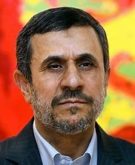CHRI – Iranian authorities have transferred a large number of inmates out of Evin Prison in Tehran—notorious for holding political prisoners—to other prisons and implemented further security measures in Evin in preparation for more sudden influxes of detainees like those seen following recent crackdowns on street protests, sources informed the Center for Human Rights in Iran (CHRI).
“Evidence points to preparations being made in Evin in the face of possible protests,” one of the sources with detailed knowledge of the transfers told CHRI on February 12, 2020.
“They started transferring the prisoners 10 days ago and at the moment very few are left in wards 2, 8 and 7—mostly political and ‘security’ prisoners, as well as prisoners of conscience,” added the source who spoke on the condition of anonymity for security reasons. “Other wards have been shut down and locked.”
“When the November 2019 protests happened, many detainees had to be released because there was not enough space to keep them,” added the source. “That was a lesson for officials to prepare for the possibility of more and wider protests.”

INFOGRAPHIC: Here’s how many political prisoners have died in state custody since 2003.
Some 7,000 people were arrested in November 2019 according to Hossein Naqavi Hossein, the spokesman of the Iranian Parliament’s National Security Committee, when protests exploded in dozens of cities throughout the country following the Rouhani government’s announcement of a nationwide gasoline price hike.
To date, Iranian authorities have not informed the public of how many remain detained as of February. Nor have they commented on the transfers. However, in June 2017, former Justice Minister Mostafa Pourmohammadi said there should be “a large detention center inside the city of Tehran” for temporary detainees because it was impractical to transport them 20 miles away to the GTCP, also known as Fashafouyeh Prison, and bring them back to the capital to be tried.
“Evin Prison is Becoming a High-Security Detention Center”
On February 11, former Evin Prison inmate Saeed Malekpour posted a note on his Facebook page stating that the prison is “becoming a high-security detention center modeled on wards 2-A and 209,” the severely restrictive, high-security wards respectively controlled by the Islamic Revolutionary Guard Corps (IRGC) and the Intelligence Ministry.
He added that ongoing construction in the emptied wards was resulting in more security cameras as well as extended walls and barbed and electric wire fence installations.
Malekpour, who served 11 years in Evin for allegedly creating a computer program that was used by operators of Persian pornographic sites, fled Iran for his resident country of Canada in August 2019 while he was out of prison on furlough (temporary release).
“They have cut all the trees in the open common areas of wards 7 and 8,” wrote Malekpour, who is now based in British Columbia. “There were lots of large thick trees there. They were the only things that cheered up the prisoners. The club… where prisoners could exercise has been shut down.”
Since the Iranian government’s large-scale crackdown on mass street protests in 2009 that came to be known as the “Green Movement,” the IRGC-controlled Ward 2-A has been the primary holding area for detained protesters, dissidents and other individuals held on political charges.
“But since last year, another detention center has been built by the IRGC outside Evin Prison,” a source with knowledge of the construction told CHRI. “The exact location isn’t clear. It has remained secret.”
Harsh Changes Occurring Under New Prison Warden
The prison transfers and additional security measures come on the heels of stricter rules and restrictions that were imposed on prisoners in Evin after Gholamreza Ziaei took over as the facility’s new warden in July 2019.
Ziaei, who was appointed as the director of Evin Prison in July 2019, was previously in charge of several prisons knowns for their inhumane conditions, including the Kahrizak Detention Center where at least five detainees who had been arrested at Tehran’s 2009 mass street protests died after being tortured there.
“There have been new developments in Evin ever since Ziaei came from Rajaee-Shahr Prison [in the city of Karaj],” said a source with detailed knowledge of the recent changes at Evin. “They say it was his idea to transfer prisoners [to the GTCP] to make room for detained protesters.”
Former prisoners who were transferred from Evin to the GTCP have echoed previous detainees complaints that the GTCP, which is known for its inhumane living conditions, lacks basic living facilities and space, including enough rooms and beds for all inmates.
Some Iranian authorities have confirmed these reports, including Hassan Khalilabadi, a councilman in the nearby city of Shahr-e-Rey, who publicly stated after the state’s violent crackdown on widespread street protests in November 2019 that the prison is inadequately equipped.
“Fashafouyeh is terrible,” a former GTCP prisoner told CHRI. “There’s no such thing as drinking and running water there. It’s so salty you can’t drink it. Prisoners have to buy bottled water from the store, but they don’t stock enough so there’s a black market for it.”
“The prison is located in a very remote area in the middle of a desert and it’s very hard for relatives to get there [for visits],” added the source. “The hygiene situation and food quality are really bad. At times they’ve found rodent droppings in the meals.”
The former prisoner added that “inmates have to pay for everything they need, from a place to sleep to making phone calls… Sometimes you see prisoners sleeping in front of the toilets because there’s not enough space. Then there’s also a lot of drugs that are openly traded. There so much of it that sometimes prisoners buy phone cards with drugs instead of paying cash. Generally speaking, it’s a place primed for disaster and if it continues like this, anything could happen.”
At least five people who were detained in connection with the state’s crackdown on protests in November 2018 died under suspicious circumstances in prisons throughout the country, according to research by CHRI.
In January of that year, Iranian Canadian academic and conservationist Kavous Seyed-Emami also died suddenly while held for interrogations in Evin Prison.
To date, no Iranian official has been charged or held accountable for those deaths.
Read this article in Persian.
 Shabtabnews In this dark night, I have lost my way – Arise from a corner, oh you the star of guidance.
Shabtabnews In this dark night, I have lost my way – Arise from a corner, oh you the star of guidance.


